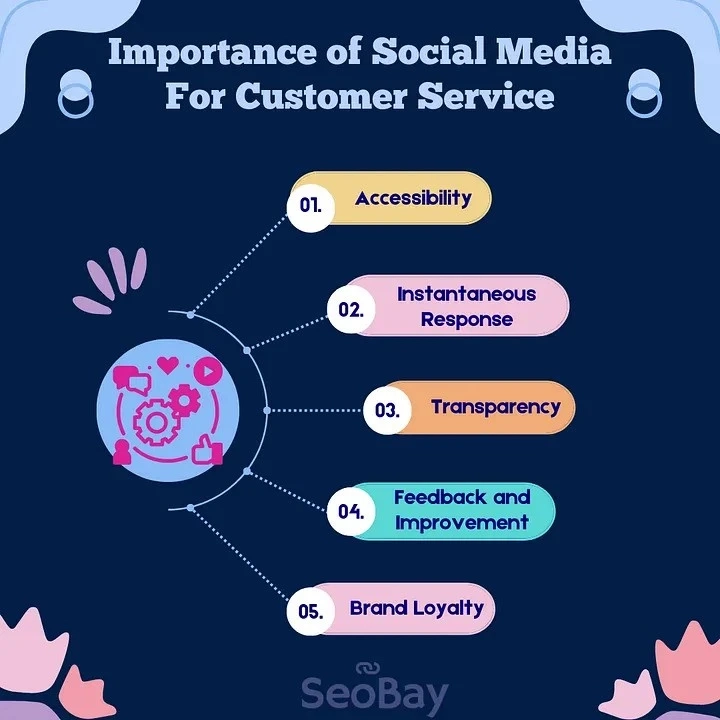Social media is a powerful tool for small businesses to connect with their audience in a cost-effective and engaging way. By establishing a presence on platforms like Facebook, Instagram, and Twitter, businesses can reach a wider audience, build brand awareness, and foster relationships with customers. Social media allows for direct communication, enabling businesses to receive feedback, address concerns, and showcase their products or services.Additionally, it provides valuable insights into customer preferences and behaviours, which can inform marketing strategies and drive sales. In today’s digital age, having a strong social media presence is essential for small businesses to stay competitive and thrive in the market.
How Small Business Can Use their Social Media Platforms Effectively
- Define Your Goals: Determine what you want to achieve through social media, whether it’s increasing brand awareness, driving website traffic, or generating leads.
- Know Your Audience: Research your target demographic to understand their interests, preferences, and behaviours on social media platforms.
- Choose the Right Platforms: Select social media platforms that align with your business goals and where your target audience is most active.
- Create Compelling Content: Develop high-quality content that resonates with your audience, including images, videos, blog posts, and infographics.
- Consistent Branding: Maintain a consistent brand identity across all social media channels to build recognition and trust among your audience.
- Engage with Your Audience: Respond to comments, messages, and mentions promptly to foster relationships and demonstrate your commitment to customer satisfaction.
- Use Hashtags Wisely: Incorporate relevant hashtags into your posts to increase visibility and reach a broader audience interested in your industry or niche.
- Monitor Analytics: Track key metrics such as reach, engagement, and conversions to evaluate the effectiveness of your social media efforts and make data-driven decisions.
- Run Targeted Ads: Utilise social media advertising tools to target specific demographics, interests, and behaviours, maximising the impact of your marketing budget.
- Stay Updated: Keep abreast of the latest social media trends, algorithm changes, and platform updates to adapt your strategy and maintain relevance in the ever-evolving landscape.
What is the Importance of Social Media in Customer Service
Social media has become a game-changer for customer service in businesses of all sizes. It’s not just a platform for sharing updates or promotions; it’s a direct line of communication between businesses and their customers.
Social media has completely transformed customer service, revolutionising the way businesses interact with their customers. Unlike traditional methods, social media offers immediate and accessible communication channels where customers can easily reach out with questions, feedback, or complaints. This instant connection allows businesses to provide prompt responses, addressing issues in real-time and demonstrating their commitment to customer satisfaction. Moreover, social media platforms enable public discussions, fostering transparency and accountability as businesses openly address concerns. This transparency not only builds trust but also showcases a company’s dedication to resolving issues swiftly. Additionally, social media provides valuable insights into customer preferences and behaviours, allowing businesses to tailor their services more effectively. Overall, social media has made customer service more personalized, responsive, and transparent, ultimately enhancing the overall customer experience.
Here is what importance social media have for business in terms of customer service.
Accessibility: Customers can reach out to businesses anytime, anywhere, making it convenient for them to seek assistance or provide feedback.
Instantaneous Response: Social media allows businesses to respond to customer inquiries or complaints in real-time, demonstrating their commitment to customer satisfaction.
Transparency: Addressing customer concerns publicly on social media shows transparency and accountability, which builds trust and credibility with the audience.
Personalisation: Businesses can tailor their responses to individual customers, addressing them by name and providing personalized solutions, enhancing the overall customer experience.
Reach and Visibility: Resolving customer issues publicly on social media not only helps the individual customer but also showcases the business’s commitment to customer service to a wider audience, potentially attracting new customers.
Feedback and Improvement: Social media provides valuable feedback from customers, enabling businesses to identify areas for improvement and make necessary adjustments to products or services.
Brand Loyalty: Effective customer service on social media can foster stronger relationships with customers, leading to increased brand loyalty and advocacy.
Competitive Advantage: Businesses that excel in social media customer service gain a competitive edge over competitors who may not prioritise this aspect, leading to better customer retention and satisfaction.
Ready to take your customer service to the next level? Contact us today to learn how our social media marketing agency can help you harness the power of social media for exceptional customer experiences or just WhatsApp Us.



